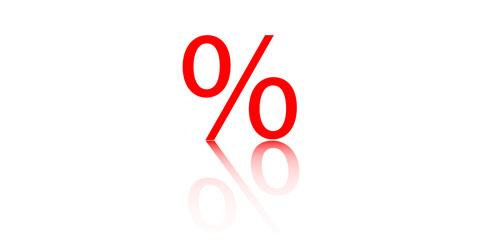More
High inflation usually means that the money supply in the country increases. The country's central bank prints new bills and increases its lending to the banks so as to facilitate investment and consumption. Increased money supply promotes inflation in that the purchasing power per currency unit (e.g., Euro) decreases.
Central banks can to some extent control the rate of inflation by increasing or decreasing the money supply and changing their lending rates (discount rates). A certain amount of inflation is considered healthy since it implies a positive confidence in future opportunities and growth in the economy. This is particularly true if price increases depend on increasing demand more than on the supply of products and services. Many central banks in developed countries aim for an inflation target of 2% per year.
Inflation means that the value of money decreases and that the purchasing power per currency unit is lower. In periods of high inflation, everyone with loans is a winner, since inflation makes the value of the loan decrease and helps to amortize the loan. In order to compensate for the decreases in value in times of high inflation, lenders demand ever higher interest rates. Therefore, interest rate levels are higher in periods of high inflation as compared with interest rates in periods with low levels of inflation. Low inflation, by contrast, is an advantage for those who save, since the purchasing power of the saved capital is relatively constant.
Inflation is an important measure for assessing the condition of a country's or a region's economy. Most decision-makers and economists watch for changes in the rate of inflation. Increasing inflation is generally seen as meaning that the state of the economy is on the way up. Low inflation may imply a poor economy, low growth and in extreme cases a crisis. Changes in inflation are thus well-correlated with the country's GNP (Gross National Product).
The causes of swings in the economy and in inflation are, of course, many. Economists collect data, analyze it and try to understand what macro-economic connections affect and drive the swings. The goal is to be able to foresee changes so as to be able to reduce their extent and their consequences in a timely manner. The ever more global and complex economy makes it more difficult to make predictions. There can be a boom in one part of the world at the same time as there is a bust, deflation and negative growth in another part. Compare, for example, the situation in Asia with Europe and the USA after the financial crash of 2008.








